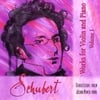My good friend and colleague Dr. Christopher Chaffee recently submitted the following essay to me, which details the socio-economic climate for the musical arts in Dayton in 1933. 1933 was the year of the very first concert performed by the Dayton Philharmonic Orchestra. Dr. Chaffee's essay appeared in the program for the DPO's 75th anniversary concert, presented last spring at the Dayton Art Institute. Today we find ourselves caught up in the most severe economic turbulence since the Great Depression of the 1930s. Yet even back in those times, new ideas and fresh starts for musical ensembles came out of the chaos. Perhaps this can give us some hope that music institutions will, with vital help from supportive communities, perservere through this current crisis.
The Origins of the Dayton Philharmonic Orchestra
We are here tonight to celebrate and recreate a remarkable achievement. After they finished their first concert in 1933, Paul Katz and his musician friends probably had no idea what would take place over the next seventy-five years. Katz did have a vision of a permanent orchestra for Dayton, and within the next ten years, this dream became a flourishing reality. Look where we are today! This is the joyful culmination but we need to go to the beginning and consider two fundamental questions- why an orchestra, and why here in Dayton?
At the turn of the 20th century, there were less than twenty orchestras in the United States. By 1940 there were more than three hundred. A complex web of social factors contributed to this explosive growth, but here are three that are most relevant to the founding of the DPO:
• Millions of European immigrants arrived in the United States, often settling in cities like Dayton. Unlike their home countries, there were no royal courts or opera houses to sponsor ensembles, so in typical American fashion, orchestras driven by entrepreneurial spirit emerged to meet the strong desire for great symphonic music many of these immigrants shared.
• With the advent of the radio and phonograph, Americans moved away from the idea of active music making in the home to passive consumption of music. This coincides with the rise of greater spending power for the middle and lower classes, especially in the 1920s. More families considered purchasing concert tickets a normal form of entertainment instead of something for special occasions only, leading to a burgeoning interest in live music.
• As cities of all sizes matured from fledgling to established, a sense of civic pride and local identity emerged, often of a competitive nature. Communities considered cultural institutions essential centerpieces of this identity, and civic leaders and local corporations worked together to foster a sense of pride by sponsoring them.
If this fertile social context was not in place, one could argue that Paul Katz’s experiment would have failed. The Great Depression was a barrier, but not as much as we might think today. Even at the height of the Depression, music was an essential part of everyday life. Cash-strapped families often sold all their other possessions but kept their radios during this difficult period. Prior to the 1930s, Dayton heard plenty of symphonic music performed by touring or regional ensembles. It was Paul Katz’s singular vision coupled with the enthusiastic support of the community that created a homegrown orchestra comprised of local musicians.
As the Dayton Philharmonic continues to grow and change with the times, this community support is essential. Paul Katz’s 1 June 1933 concert was a daring idea that set seventy-five years of great music and local pride in motion. Let us make sure that the next seventy-five years are just as amazing.
-Christopher Chaffee, Assistant Professor of Music, Wright State University
Sunday, November 9, 2008
Guest Essay by Christopher Chaffee: The Origins of the Dayton Philharmonic Orchestra
Subscribe to:
Post Comments (Atom)








3 comments:
Yay, CC! Nice article! :-)
Thank you for the information on Dayton Philharmonic Orchestra. With the tough economy, many city orchestras are finding it hard to retain membership and performance.
We take so much for granted in the modern age - thanks for the reminder that many of the things we have were built with the hard work of others who came before us. Hopefully people will realize the importance of things like city orchestras and performance halls before they are gone.
http://pianosheetmusiconline.com/
Post a Comment